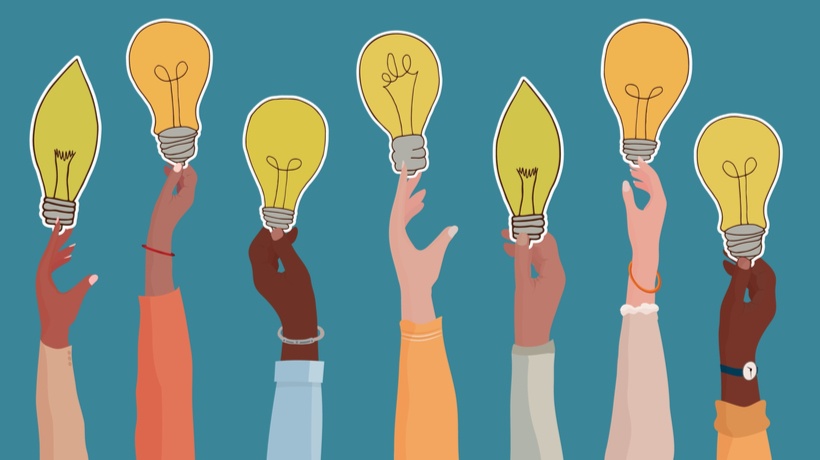Designing Diverse Learning Experiences
How are you designing your learning experiences so all learners see themselves in the course? This question has been at the forefront of our minds as the call for social justice asks us to interrogate the cultural and structural forces that are causing harm to many of our learners. But, as Instructional Designers and imperfect humans, we often hesitate because this work feels scary.
- It feels scary because we fear facing our own biases and shortcomings.
- We fear getting it wrong and causing more damage.
- And we fear being held accountable for all of the above.
But doing nothing can be even more damaging. And we can no longer use our discomfort as an excuse for continuing harm.
It's time for us to realize that we are in a position of power when we design curriculum, and the way we design our curriculum can be a step toward solidarity with all marginalized people. In our position of power, we can choose to stay in our comfort zones. But many people—perhaps those who have disabilities, those who are gender-nonconforming, those who are non-white—don't have the same choice.
As Fuentes et al. share in "Rethinking the Course Syllabus: Considerations for Promoting Equity, Diversity, and Inclusion," it's time for us to do our best "to not recreate systemic oppression within the classroom."
Whose Voices Are You Using?
So, begin by examining your courses. Examine whose voices are amplified. Who is mainly represented in your curriculum? Whose voices are silenced? Whose are underrepresented?
These questions may feel daunting to answer, as they ask us to examine how we are perpetuating social hierarchies. But there is no way to escape our biases! What if you discover that there is an absence of representation (unintentional or otherwise)? As social justice activist Sonia Renee Taylor reminds us, "when we don't see ourselves reflected in the world around us, we make judgments about that absence. Invisibility is a statement." [1]
But including diverse people is not enough unless we actively examine how. Otherwise, what can be a powerful teaching moment can end up reinforcing harmful stereotypes.
Stop And Ask Questions
Some questions you might ask when including people from marginalized communities:
- How are they represented?
- Do they perpetuate stereotypes?
- What is their position of power or social status?
- How are we portraying their moral compass?
These questions help us use "identity-conscious casting." Identity-conscious casting intentionally considers the identities of characters in order to oppose racism, honor and uplift cultures, build stronger stories, and contribute to a more equitable world.
When we write a scenario or a story, we are casting characters. Who do you typically cast as the leader in a position of power? Who do you typically cast as an employee needing corrective action? How do those castings reinforce systemic oppression? From your character's gender to their name, how are you contributing to a more equitable world?
By answering these questions, we can learn about the systems of oppression and how we're complicit in them. Our job is to take a deep breath to move beyond shame and guilt, and admit that we have the power to elicit change.
Finding the answers to our questions is not intended to blame, insult, or attack. It's reality. As social change activist Ben O'Keefe reminds us, "we can ignore reality or we can face reality, because only when we face that—only when we give ourselves permission to forgive ourselves, to look forward from this day forward for permission to become better partners and co-conspirators in the movement, permission to educate yourself, permission to grow—that is being a good ally." [2]
References:
[1] The Body Is Not An Apology










